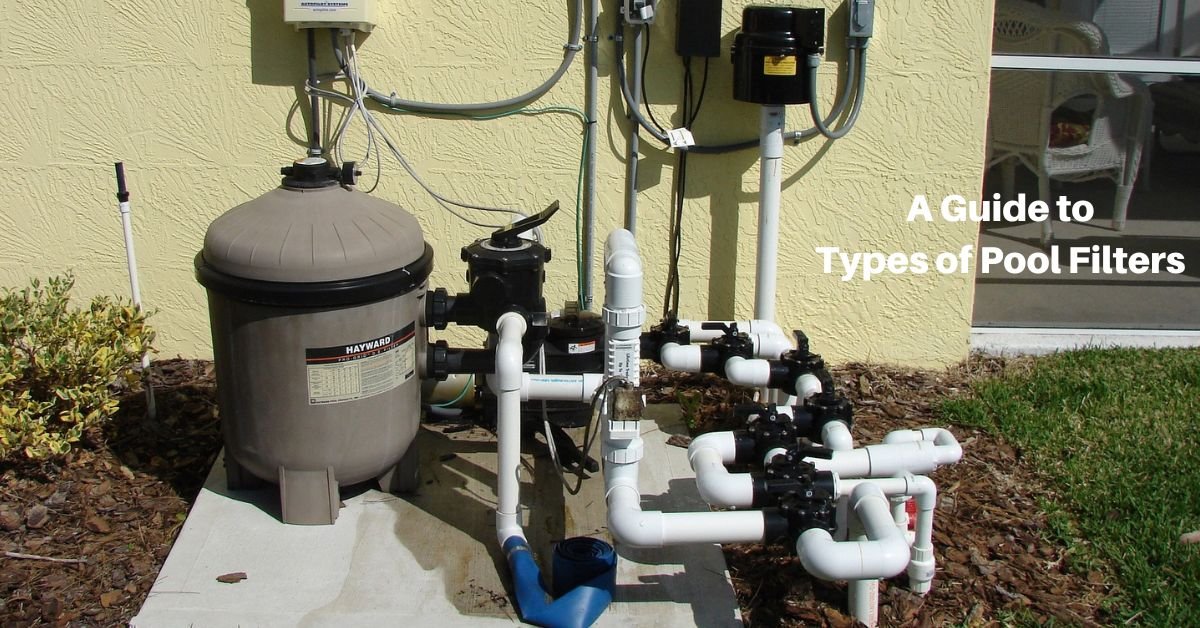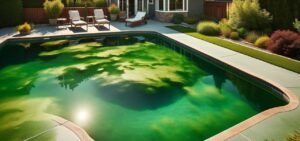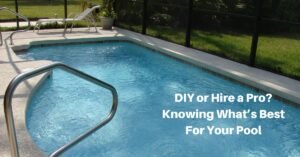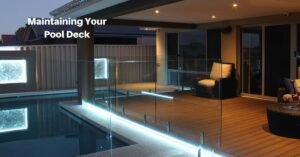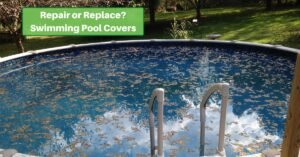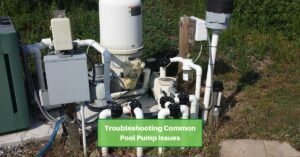Swimming pools are great for relaxing and enjoying yourself. However, maintaining a pool’s cleanliness and safety is crucial, and this is where pool filters come into play. Filters are essential to any swimming pool, helping keep the water clean and clear.
The most common types of pool filters are cartridge, sand, and diatomaceous earth (DE). Each type has pros and cons, and the choice depends on various factors, such as the pool size, your budget, and personal preference. This article will delve into these filters’ details, workings, pros and cons, and costs.
Sand Filters
Sand filters push the water through a large body of sand within the filter. The special pool-grade sand prevents small debris from filtering through. As the water filters through the sand and the debris is trapped, the sand filter becomes even more helpful.
The filter has to be cleaned through backwashing.
Pros:
- Easy to clean as no filter disassembly is required.
- The sand in the filter can last up to 5 years.
- More cost-effective than other types of filters.
Cons:
- Backwashing wastes water.
- Larger footprint than cartridge filters.
- Requires more flow to filter making it less energy efficient.
Cartridge Filters
Removable cartridges filter debris with cartridge filters, trapping particles as small as 10 microns. These cartridges consist of cylindrical filters made of pleated paper-like material. The filter(s) are located in the unit’s tank, and water flows through the filter before cycling back into the pool.
Pros:
- Easy to maintain.
- Can filter a range of micron sizes depending on the filter media used.
- More efficient at filtering small particles.
Cons:
- Cartridges need to be replaced every 2–3 years.
- Initial cost is higher than sand filters.
- Not as effective at filtering large volumes of water quickly.
Diatomaceous Earth (DE) Filters
DE filters push water through a filter consisting of 8 grid units. These are covered with a fine powder known as diatomaceous earth, or DE. Like sand filters, DE filters are cleaned through a backwash process. This flushes everything, including the DE, off the grids and through a waste pipe.
Pros:
- Best filtration, catching particles as small as 2-3 microns.
- Usually only needs backwashing or cleaning every 2-3 months.
- Grids last for several years if cared for properly.
Cons:
- DE filter media must be added to the filter after each backwash.
- DE filters are usually the most expensive filter option.
- DE can be an irritant if inhaled.
Cost of Pool Filters
The cost of pool filters varies depending on the type and size, ranging from about $250 to $2,000.
Depending on the type of pool and filter, you may need to hire a plumber and even an electrician to do the installation. Some pool technicians are also qualified to install pool filters. An installation should take somewhere between one and three hours.
Operating Cost of Pool Filters
Operating costs for pool filters include electricity for running the pump and replacement parts. The average electric cost for running a pool pump may be $30 to $150 a month. It depends on how often and for how long your filter runs as well as your local electricity rate.
The choice of pool filter depends on various factors such as the pool type, size, budget, and personal preference. Each filter type has its pros and cons, so understanding them can help you decide on the right filtration system for your pool.

